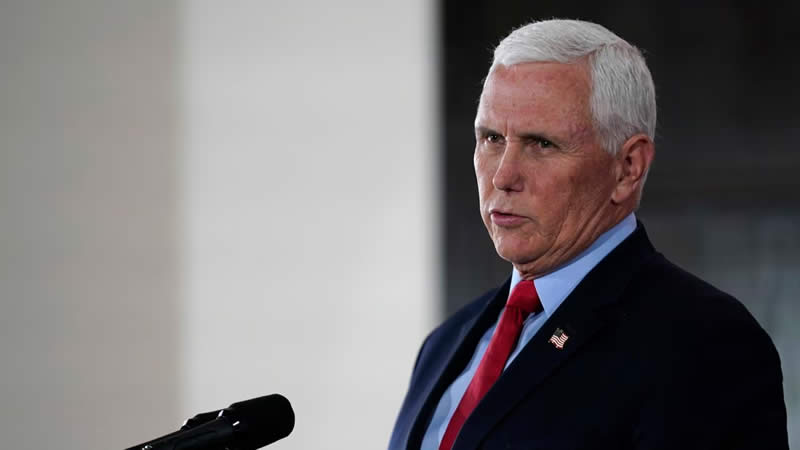“The Strongest, Most Comprehensive Border Security Bill We’ve Seen in a Generation” Faces Political Hurdles

Credit: AP
In February, House Republicans decisively rejected a border bill that Senate Majority Leader Chuck Schumer described as “the strongest, most comprehensive border security bill we’ve seen in a generation.” Democratic lawmakers argued that the rejection was politically motivated, rather than based on the bill’s substance. This decision set the stage for a heated and ongoing debate over border security.
On Tuesday, former Vice President Mike Pence highlighted the border issue by sharing News Nation’s report about his visit to the US-Mexico border. He expressed his concerns on X/Twitter, stating, “Visited the southern border today to see the #BidenBorderCrisis firsthand as a deeply concerned citizen. The crisis at our southern border affects all 50 states. It’s time for Joe Biden to take this crisis seriously & Secure Our Border Now!”
In response to Pence’s comments, Olivia Troye, his former Homeland Security and Counterterrorism advisor, replied with a pointed message. She wrote, “Dear Mike Pence: next time call your former Homeland Security Advisor, whom you very well know grew up in El Paso, TX. We could have had an honest discussion about the border, talking about the role that faith plays in a lot of the amazing people that live there, their dedication to helping migrants, asylum seekers, as well as refugees & how we can actually make a difference together.”
Troye continued her critique by recalling an offer she made during Pence’s tenure as Vice President to discuss border issues. She emphasized her strong feelings about the need for compassionate and effective border policies, especially after the tragic mass shooting in El Paso, which she attributed to the Trump administration’s hateful rhetoric. Troye lamented that border security had become a political talking point rather than a genuine effort to secure the border. She pointed out that Republicans refused to vote on effective legislation because of concerns that it might politically benefit Biden, expressing her disappointment with the party’s priorities.
Meanwhile, NBC News reported on Monday that Democrats plan to force a vote on Thursday on the bipartisan border security package that Republicans blocked two months earlier. The outlet also noted that former President Donald Trump had played a role in derailing the legislation and that Republicans are expected to block it again. This cycle of obstruction and political maneuvering underscores the deep divisions in Congress over border security.
Senator Chris Murphy from New Hampshire added to the debate with a statement criticizing Senate Republicans for their opposition. He argued that the Republicans’ rejection of the bipartisan border security measure was not based on its effectiveness but on a strategic decision to keep the border issue unresolved for political gain. Murphy accused Republicans of wanting the border to remain chaotic to benefit their election strategies.
The ongoing saga of the border security debate highlights the broader challenges in Congress, where partisan divisions often hinder the passage of critical legislation. As the debate continues, the American public remains caught in the crossfire, awaiting effective and humane solutions to the complex issues at the southern border.


